7 App Platform Trends 2025: Innovations for Your Business

App platforms are the backbone of digital transformation and will become the decisive factor for business success in 2025. Companies face the challenge of keeping up with the pace of technological innovation and the growing expectations of users.
Those who know the most important app platform trends can optimize processes in a targeted way, secure clear competitive advantages, and bring innovations to market faster. That’s exactly what makes the difference in a fiercely contested market.
Do you want to know which developments really matter? In this article, I’ll show you the 7 app platform trends for 2025 that will future-proof your business.
Look forward to practical insights, from AI integration and low-code to automation and security.
Why app platforms are critical to success in 2025
Digital transformation is changing everything. Companies that want to be successful in 2025 cannot do without a modern app platform. Customers demand more, technologies are evolving rapidly, and new business models are emerging almost daily. Those who don’t keep up quickly fall behind.
Changing user expectations
User expectations are continuously rising. They want a seamless, personalized, and secure experience on every app platform—whether smartphone, tablet, or desktop. Companies must respond to market changes and customer feedback faster than ever before.
According to Mobile App Development 2025: 30 Trends, flexibility, performance, and security are key user criteria. Those who don’t deliver here risk churn and reputational damage.
Technological progress accelerates innovation
Technologies such as artificial intelligence, machine learning, and cloud services are driving innovation in app platform development. These technologies make it possible to automate processes, make data-driven decisions, and create scalable solutions.
Platforms thus become the foundation for continuous improvement and the integration of new features. This accelerates development and gets companies to their goals faster.
Competitive advantages through platform strategies
With a modern app platform, companies can bring products and services to market faster. Smaller teams and shorter development times reduce costs and increase flexibility in day-to-day business.
Processes can be designed more efficiently, leading to measurable competitive advantages. Those who invest early benefit in the long term from a strong market position.
Challenges for companies
Integrating a wide variety of systems and data sources poses major challenges for companies. Data protection, compliance, and IT security are becoming increasingly important. The task is to manage complexity while remaining agile.
Only with a clear strategy and the right tools can this balance be maintained.
Relevance across industries
App platform trends are no longer just relevant to the IT industry. E-commerce, manufacturing, service providers—every sector relies on digital workflows. Especially in SMEs, platform solutions accelerate the digitalization of processes.
The result: more efficient processes, greater transparency, and better customer experiences.
Data & facts
The numbers speak for themselves: 218 billion app downloads in 2020, and the trend is rising. Estimates suggest that cloud-based platforms will be standard in 80 percent of all companies by 2025.
The app platform is therefore the backbone of digital business models and innovations.
Outlook
App platforms are evolving into the heart of modern companies. They enable innovation, efficiency, and growth. Those who know the trends and use them strategically secure sustainable success in the digital age.
7 app platform trends 2025: innovations for your business
The digital world is spinning ever faster. If you want your company to be among the leaders in 2025, you need to know and leverage the key trends around the app platform. The following seven innovations show how you can accelerate processes, tap into new markets, and future-proof your organization.
1. No-code and low-code platforms: democratizing app development
No-code and low-code platforms are no longer niche topics. They are becoming the driving force when it comes to the rapid development and adaptation of apps. With a modern app platform, you can now create your own applications without in-depth programming knowledge. This dramatically accelerates prototyping and time-to-market.
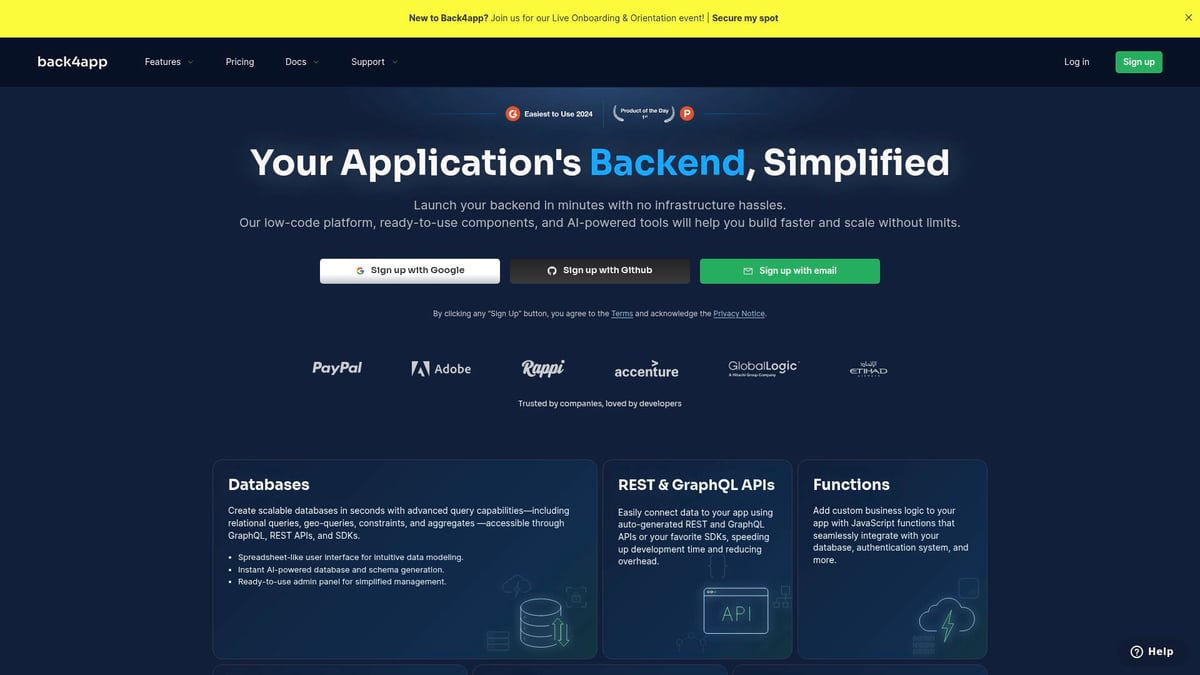
The big advantage: business units or small teams can digitize their processes without having to wait for IT. The app platform offers drag-and-drop editors, prebuilt components, and easy integrations. This way, an MVP that delivers real value can be created in just a few days.
A look at the numbers shows the relevance: According to Gartner, around 70% of new applications will be built using no-code or low-code platforms by 2025. Providers such as Back4App and Zoho Creator set standards in terms of flexibility and scalability. They make it easy to connect existing systems and customize workflows.
But there are limits. Complex, highly individualized requirements can sometimes push no-code/low-code to its limits. Nevertheless, the benefits for SMEs and mid-sized companies remain enormous.
Comparison table: No-code vs. low-code
| Criterion | No-code | Low-code |
|---|---|---|
| Target group | Business departments, beginners | Developers, IT-savvy teams |
| Customizability | Limited | High |
| Speed | Very fast | Fast |
| Cost | Low | Medium |
| Examples | Zoho Creator | Back4App |
With an app platform based on no-code/low-code, you can shorten innovation cycles and empower teams to develop solutions themselves.
2. Artificial intelligence and automation in app platforms
Artificial intelligence is already everyday reality on every app platform. Whether chatbots in customer service, intelligent search functions, or automated analysis of user behavior—AI features are standard in 2025. They deliver personalized user experiences and help optimize processes.
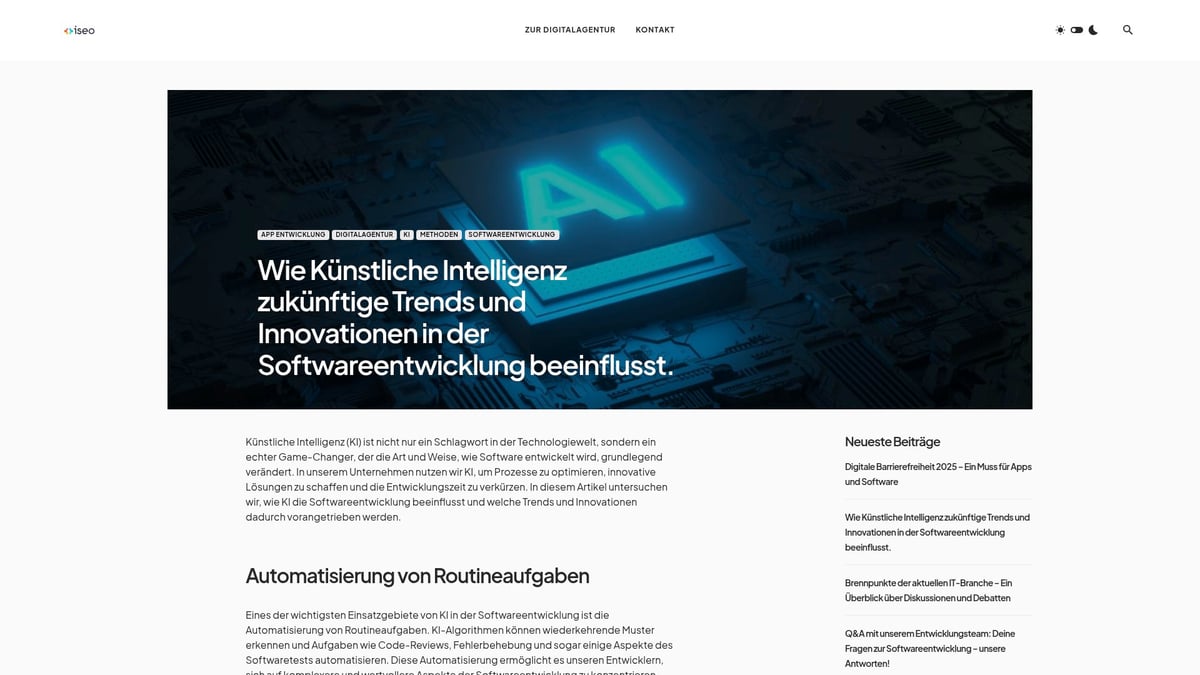
Automation is the second major lever. Routine tasks such as data entry, document management, or internal approvals will increasingly run automatically via the app platform. The result: fewer errors, greater efficiency, lower costs.
Platforms like Firebase or AWS Amplify integrate AI services that can be flexibly embedded into existing workflows. Predictive models for sales and marketing are also directly usable. The app platform thus becomes an intelligent assistant that supports decisions and evaluates data volumes effectively.
Of course, there are challenges. Data protection, ethical questions, and the quality of training data must be right. Nevertheless, the trend is clear: those who use AI and automation via the app platform gain a real advantage.
Typical use cases for AI & automation:
- Chatbots for support and sales
- Intelligent search functions
- Automated document filing
- Predictive analytics in marketing
The app platform is thus evolving into the heart of digital innovation.
3. filehub: automating file and document workflows
File and document processes are the backbone of almost every organization. The app platform filehub shows how automation and integration set new standards here. With filehub, workflows can be created without any programming and connected to familiar tools like Outlook, Dropbox, or Docuware.

What’s special: the app platform uses a no-code approach, enabling even non-experts to automate processes such as invoice retrieval, digital approvals, or integration into web portals. This is a real game changer, especially for SMEs, finance teams, or companies with high security requirements.
Data protection and compliance are integral parts of the solution. Data is stored in a GDPR-compliant manner in Germany; filehub uses C5-certified data centers. This allows you to process sensitive data securely.
Another advantage of the app platform: getting started is free, the interface is intuitive, and numerous templates are available immediately. Its flexibility and efficiency gains are particularly convincing for mid-sized companies.
Learn more about automating file workflows and how filehub as an app platform transforms your document processes.
Typical use cases:
- Automatic invoice retrieval from portals
- Digital approval processes
- Integration with Microsoft Teams or on-premise systems
With such an app platform, you reach a new level of automation and security.
4. Cross-platform development: more reach with a single codebase
Cross-platform development is a key factor for reach and efficiency. A modern app platform enables you to create applications for iOS and Android with a single codebase. Frameworks like Flutter and React Native are setting the standard here.
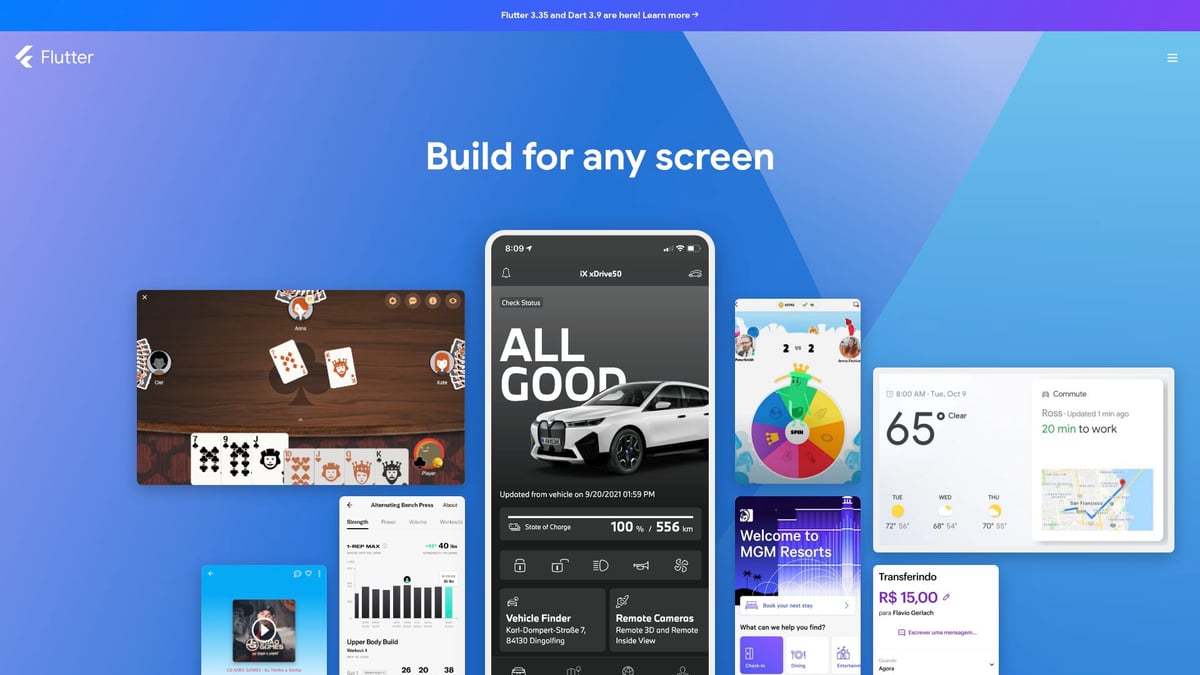
With a cross-platform app platform, you save time and costs because development and maintenance efforts are lower. Users get a consistent experience on all devices. Flutter scores with high performance, a native rendering engine, and an active community. React Native impresses with flexibility and extensive libraries.
Cross-platform app platforms are particularly attractive for startups and mid-sized companies. New features can be rolled out quickly and tested on different devices without the need for multiple development teams.
Of course, there are also limitations. Not every device-specific function can be perfectly replicated, and sometimes compromises in user experience are necessary. Even so, cross-platform app platforms will be indispensable in app development in 2025.
Comparison: Flutter vs. React Native
| Feature | Flutter | React Native |
|---|---|---|
| Performance | High | Medium-high |
| Community | Very large | Large |
| Libraries | Extensive | Very extensive |
| Customizability | High | High |
The app platform with a cross-platform approach is the foundation for speed and scaling.
5. Cloud-based backend platforms: scalability and flexibility
Cloud-based backend solutions are the backbone of every modern app platform. They offer ready-to-use services such as authentication, real-time databases, analytics, and hosting. This eliminates the need to operate your own servers or handle maintenance.
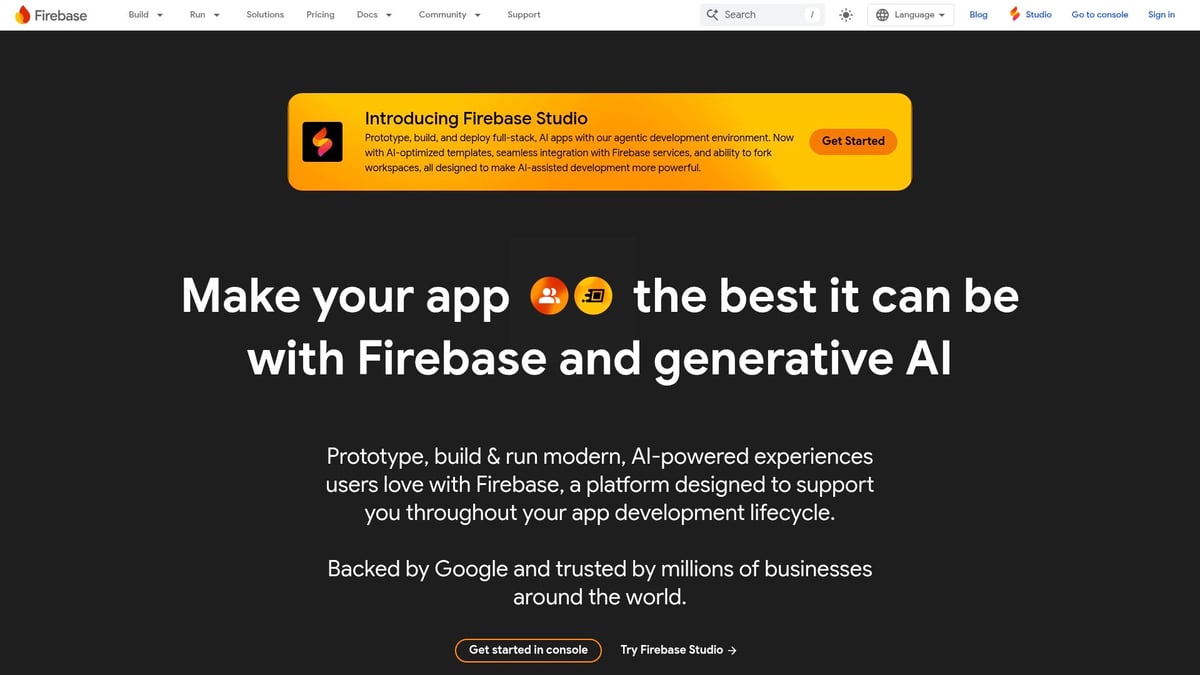
Firebase and AWS Amplify are prime examples of this development. The app platform is flexibly scalable here and grows with your user base. This is a huge advantage, especially in times of sudden growth or seasonal peaks.
Advantages of a cloud-based app platform:
- Quick start without major investments
- High availability and performance
- Easy integration into existing systems
However, you should keep dependence on the cloud provider and data protection aspects in mind. Nevertheless, according to Gartner, around 80% of companies will rely on cloud-based app platform solutions by 2025.
Typical features:
- Real-time databases
- API interfaces
- Push notifications
- Analytics and monitoring
The app platform from the cloud is the key to innovation and growth.
6. Security and compliance as platform standard
Security is the decisive criterion for every app platform in 2025. Data protection, GDPR compliance, and certifications are mandatory. Platforms therefore rely on certified data centers, encryption, and strict access rights.
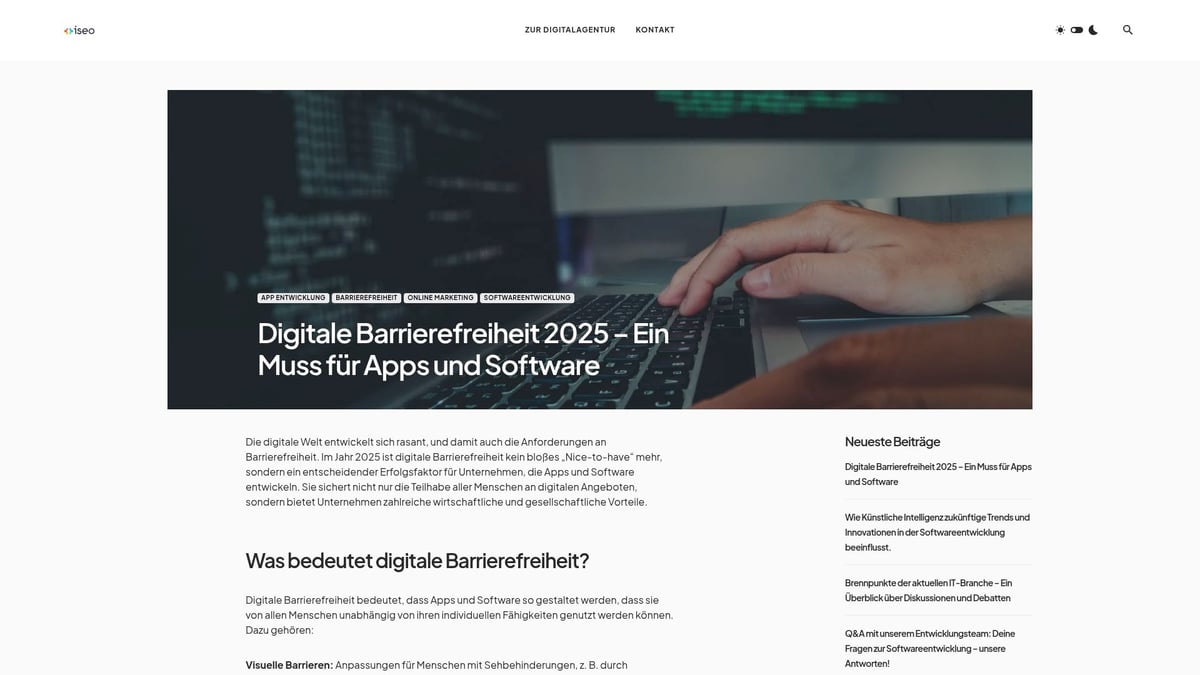
A modern app platform offers multi-factor authentication, role-based access control, and audit logs. This is essential, especially for companies in regulated industries such as finance or healthcare.
The challenges are growing: global compliance requirements and changing laws demand flexible solutions. The app platform must be constantly adapted and monitored.
Typical security features:
- Data encryption
- C5 and ISO certifications
- Local data residency
With a secure app platform, you build trust with customers and partners and protect your company from cyberattacks.
7. Integration and API-first: platforms as the central interface
Integration is the heart of every modern app platform. The API-first approach makes it possible to connect different systems flexibly and automate processes. This turns the app platform into the central interface within the company.
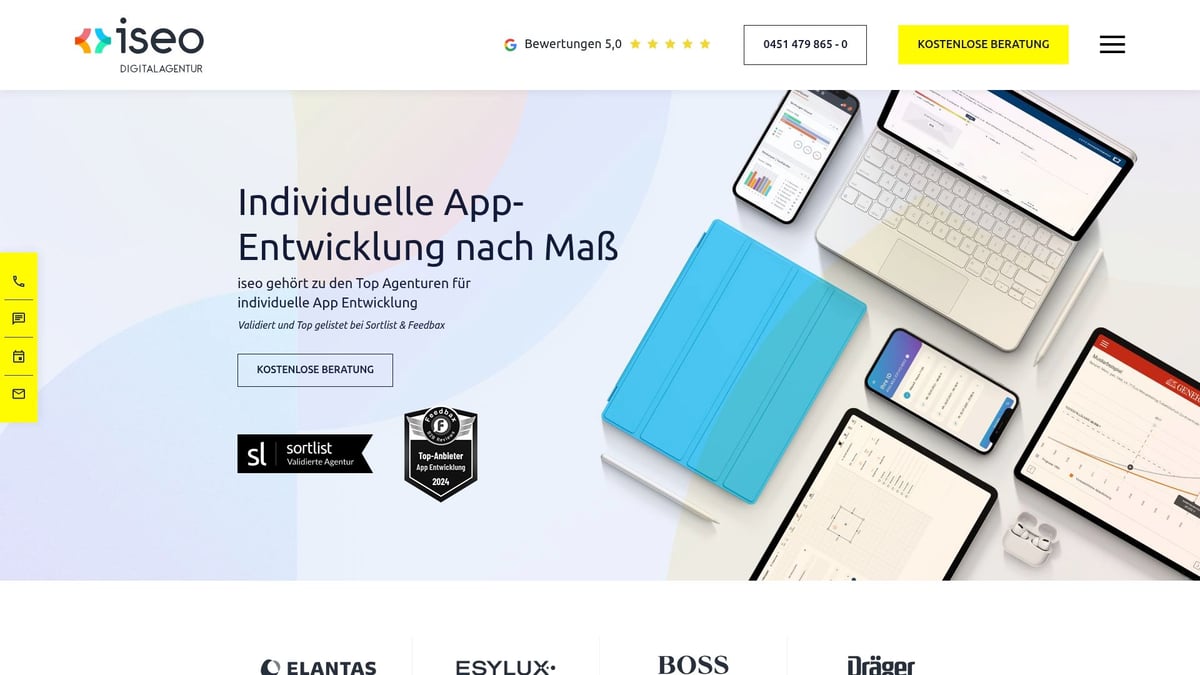
Typical integrations on an app platform include ERP, CRM, DMS, and payment systems. Centralized data management ensures that all departments can access up-to-date information. Automating cross-departmental processes saves time and reduces errors.
But integration is also complex. API management, monitoring, and security must be ensured. A powerful app platform therefore offers extensive tools for managing and monitoring all interfaces.
Use cases:
- Omnichannel commerce
- Digital business processes
- IoT integration
With an API-centric app platform, you’re equipped for all the challenges of digital transformation.
Success factors for selecting the right app platform
Selecting the right app platform is a strategic step for every company. Successful platform projects start with a clear analysis, transparent planning, and a balanced consideration of technology, costs, and user needs. What should you look for to benefit long-term from a modern app platform?
Analysis of business requirements
It starts with a thorough analysis of your own business processes. Which workflows should be digitized? Where is the greatest automation potential? An app platform should respond flexibly to individual requirements so that innovations can be implemented sustainably. A particularly helpful perspective is on automation of business processes to identify typical use cases and design efficient workflows.
Assessing costs and resources
The cost structure of an app platform is a decisive factor. Compare licensing models, operating costs, and implementation effort. Also consider how much internal know-how is required. A comparison can help:
| Criterion | Platform A | Platform B |
|---|---|---|
| Licensing model | Monthly | One-time |
| Implementation effort | Medium | High |
| Maintenance costs | Low | Medium |
Find the solution that fits your budget and resources.
Security and compliance as decision criteria
Security is a must, not a nice-to-have. An app platform must meet current data protection standards and reliably implement compliance requirements. Check whether certifications such as ISO or GDPR compliance are in place. Companies in regulated industries should pay particular attention to data residency and encryption. Only then does the platform become a trustworthy foundation for digital business models.
Technological future-proofing
The technological foundation of an app platform determines its future viability. Make sure modern architectures such as API-first, cloud, or edge computing are supported. The provider’s roadmap and regular updates show whether the platform can keep pace with new trends such as AI, automation, and cross-platform development.
User acceptance and change management
The best app platform won’t help if employees don’t accept it. Involve business departments early in the selection process. Rely on intuitive operation, training, and comprehensive support. Good change management ensures that digital transformation meets acceptance and motivation rather than resistance.
Practical examples and references
Look at successful implementations of app platform solutions in similar industries. Practical examples help to realistically assess opportunities and risks. References and benchmarks provide guidance on what works in your market segment and what potential a platform really unfolds.
Checklist for platform selection
Before you decide, check the following points:
- Compatibility with existing systems
- Flexibility for future requirements
- Transparency in costs and contracts
- Availability of test phases and pilot projects
With this checklist, you’ll find the app platform that optimally supports your company and creates long-term value.
Outlook: how companies will benefit from app platform trends in 2025
Digital transformation continues to gain momentum. Companies that actively leverage app platform trends in 2025 will noticeably speed up their innovation cycles. Modern platforms enable the development of new digital services in record time. Those who, for example, rely on low-code solutions can launch MVPs within a few days and respond quickly to customer feedback. According to App market trends 2025, according to experts, the ability to implement innovations quickly will be a decisive success factor in the competitive landscape.
Increasing innovation speed
App platform solutions provide companies with tools to test new ideas without long development cycles. Through modular building blocks, prebuilt templates, and flexible APIs, digital services can be realized quickly. Especially in the area of app platform development, teams benefit from short time-to-market phases. This makes it possible to pick up on trends early and establish innovation as a continuous process.
Efficiency gains through automation
Automated workflows are a central advantage of modern app platform systems. They replace manual routines and reduce sources of error. Especially in finance, it becomes clear how processes such as invoice verification, approvals, and reporting can be digitized through accounting and finance automation. This saves time, lowers costs, and relieves employees so they can focus on value-adding tasks.
Competitive advantages through data integration
The ability to consolidate data from different sources on an app platform gives companies a clear competitive edge. Central platforms enable a 360-degree view of customers, processes, and key figures. As a result, data-driven decisions become routine. Companies can respond more quickly to market changes and continuously improve their services.
| Benefit | Description |
|---|---|
| Centralized data management | Unified view of all processes |
| Faster analyses | Better, data-driven decisions |
| Scalability | Platform grows flexibly with the company |
Meeting regulatory requirements
App platform solutions help companies meet complex compliance requirements. Data protection, IT security, and industry-specific regulations can be implemented through integrated security features and certified data centers. This minimizes liability risks and strengthens customer trust. Platforms also offer regular updates to take new legal requirements into account promptly.
Future-proofing and scalability
With a modern app platform, companies are prepared for future challenges. Platforms flexibly grow as requirements change or new markets are tapped. Thanks to cloud architectures and an API-first approach, systems can be easily extended and adapted. This ensures long-term competitiveness and enables a quick response to technological innovations.
Practical tips for implementation
Start with a pilot project to test the benefits of an app platform in your own company. Gather feedback from users and optimize iteratively. Leverage the experience of platform providers and build partnerships to ease the entry. Those who invest in app platform trends now lay the foundation for sustainable success, high efficiency, and innovative strength in 2025.
You’ve seen how app platform trends like automation, AI, and no-code solutions shape the digital future and give your business real competitive advantages. Especially if you want to simplify recurring processes or integrate data securely and efficiently into workflows, it’s worth taking a look at filehub. The platform is designed specifically for companies that value ease of use, top-level security, and seamless integration. Just try it yourself—risk-free, directly in the trial. Try filehub.one for free now


